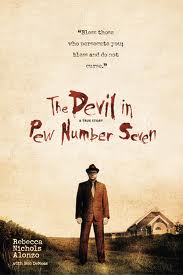The Noticer
.jpg)
Andy Andrew's little book The Noticer (2009) reminded me of Og Mandino's books of another era. He uses a simple story to make a larger point, not entirely unlike the use of a parable. Andrew's book, admittedly is not an overtly religious work, even though published by Thomas Nelson. Still, it's an engaging story and quite practical with natural applications to a Christian life. The subtitle explains the heart of the tale: "Sometimes all a person needs is a little perspective." As an old Chinese proverb states, "if you want to know what water is, don't ask the fish." Or as Ravi Zarcharias notes, "total immersion deprives the mind of a counterperspective and, for that matter, an honest evaluation." To put it more simply: we often lose perspective when we are too close to the issue. In Andrew's story an indigent old man named "Jones" provides this perspective to a number of people in crisis. For some it's a mari...




